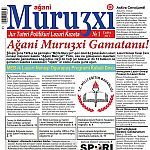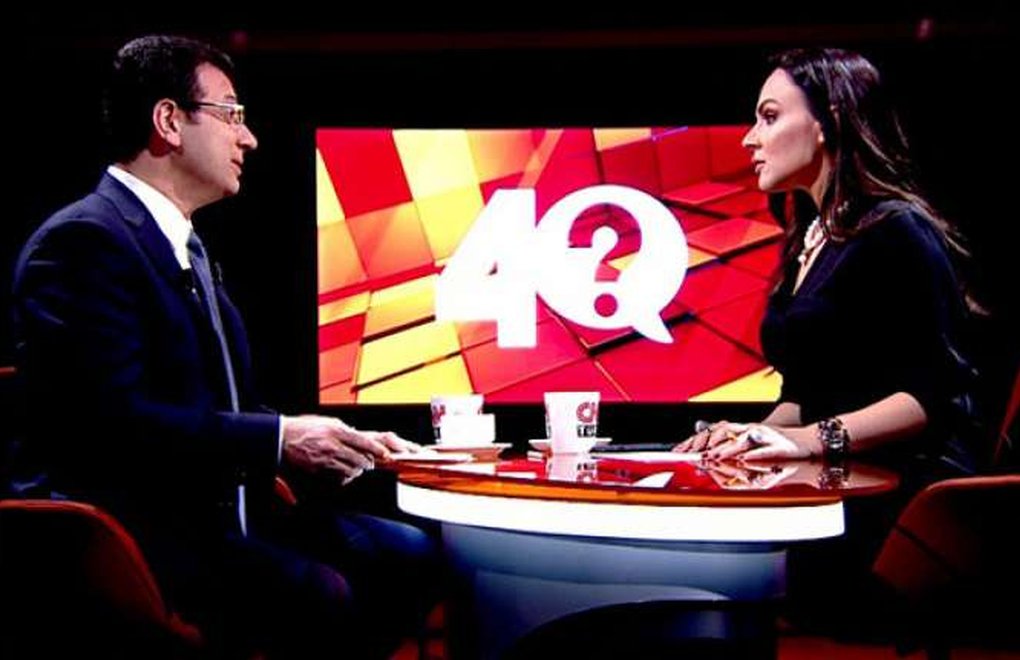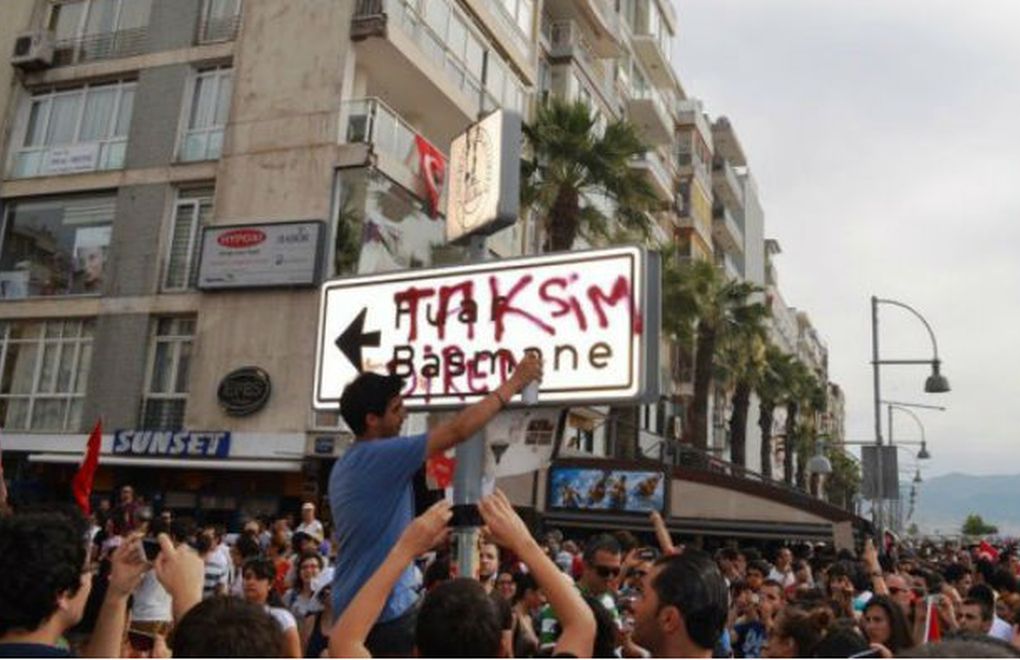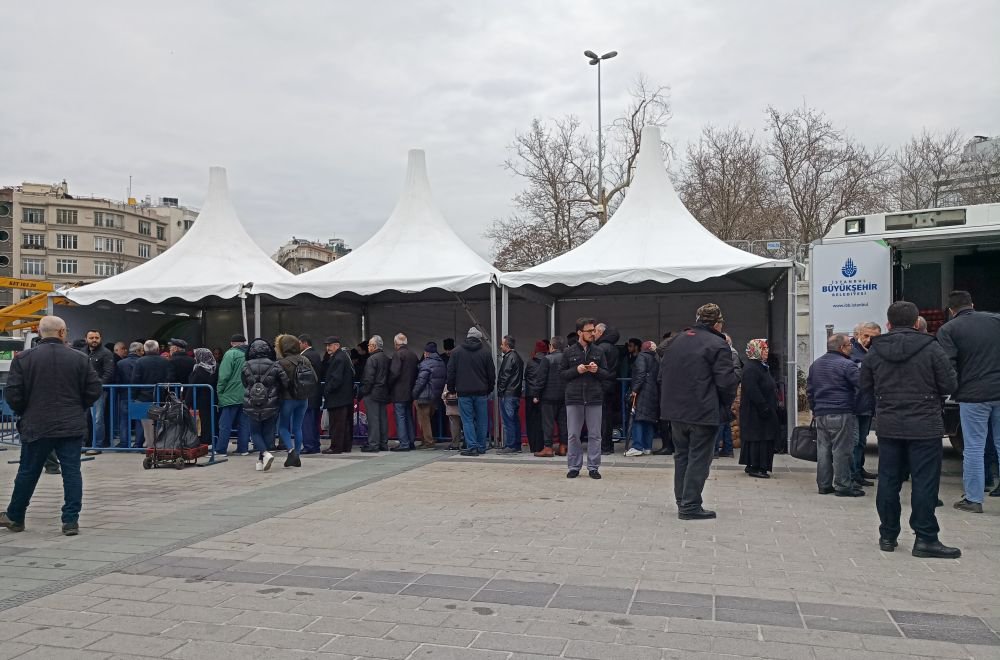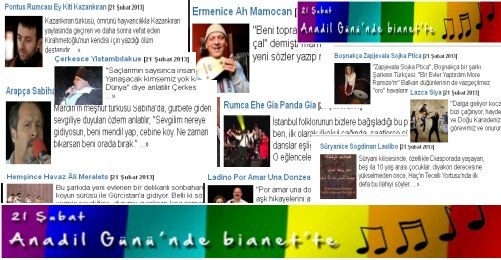
"I have got a story, but I can't express it in the language of my grandparents," said a bianet writer last year, on what mother tongue meant for her.
In 2012, bianet asked its pool of writers to share a piece of writing in their mother tongues. It was a short notice, but many writers returned with anecdotes, stories and opinions that no readers were accustomed to see in a bianet website (or elsewhere) setting.
Last year, we also included the reader reaction on our International Mother Tongue feature.
This article's introduction was from Özlem Oral's "Languages that I lost".
Last year I wrote: "Whoever wrote or translated their writings in a different language on International Mother Tongue Day once more proved that Languages remain on earth as long as people expressed."
This year, Nilay Vardar took a step forward and proved that languages remain on earth as long as people expressed them through folk chants and songs.
bianet reiterates last year's message with the different colors of mother tongues, but with the common expression of music...
In the hope to see the days we won't have to repeat this message anymore..
Acknowledgements: We are grateful to all musicians who contributed with their performances of Sabiha, Zapjevala Sojka Ptica, Yistambılakue, Ah Mamocan, Tetro Mamalo, Havaz Äli Meralets, Turike Derwes, Por Amar Una Donzea, Siya, Ey Kiti Kazankıran, Ehe Gia Panda Gia, Sogdinan Laslibo, Ah Oğlum! and Çaye Berbena in Arabic, Bosnian, Circassian, Western Armenian, Georgian, Hemşin, Kurdish, Ladino, Laz, Pontic Greek, Modern Greek, Assyrian, Turkish and Zaza respectively. (HK/BM)








